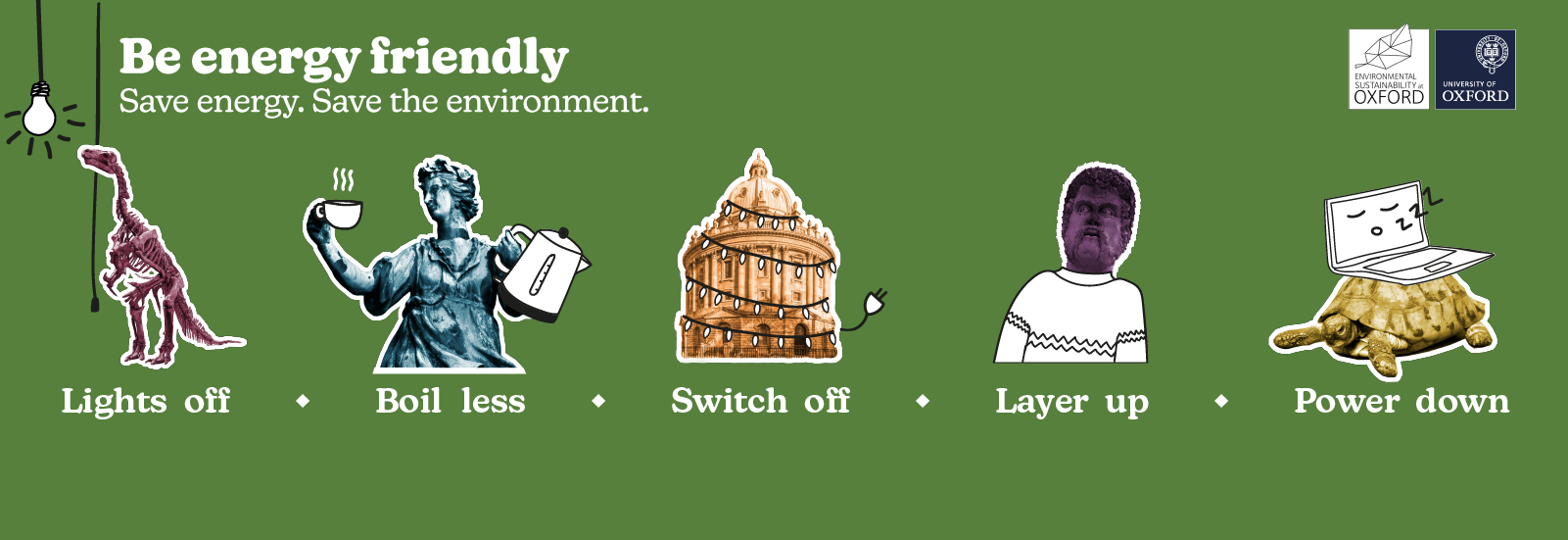Subject: Working together to reduce energy use
Energy prices are soaring. Without immediate action, this could pose a considerable risk to Oxford’s finances and the ability to deliver on our mission, which will impact us all. In [insert our department], we expect a rise of [£XXX, to be calculated based on the estimation that utility prices are expected to triple within three years] to the energy costs if we don’t intervene.
In response, the University has approved new energy-saving measures for departments [buildings/colleges] to adopt during the winter months.
Following the guidance from the University, the building’s heating system will run from 8:00am to 3:00pm (assuming regular operating hours), with temperature controls set to 19°C in the winter months. This is in line with World Health Organisation and EU guidance.
We realise that you might need to dress differently in light of the new heating arrangements. Line managers are asked to be supportive of changing from traditional work clothing to multiple layers and jumpers.
Having said that, we understand that everyone's internal temperature varies, and some may find themselves uncomfortable with these environmental controls or have particular needs relating to temperature (such as health conditions). If this is the case, please contact me [name, contact details], and we will do our best to assist. Please bear in mind that plug-in electric space heaters are not allowed as they pose a health and safety risk as well as being energy intensive.
These changes are expected to provide £5m of savings to the University during the 2022/23 financial year. They are also expected to reduce direct carbon emissions by 7,000 tCO2e – helping to achieve the University’s commitment to net zero carbon and biodiversity net gain by 2035 as stated in the Environmental Sustainability Strategy.
What else can be done to reduce energy consumption?
- As a building:
-
[where applicable, please add any other measures the building is taking, such as energy efficiency projects, adjusting water heaters, improving insulation, etc.]
- As an individual:
-
Follow the Be Energy Friendly guidance. This energy campaign has been launched by the University in response to the energy crisis. The following ideas are not new but aren’t always front of mind. Where possible incorporate these into your daily routine:
-
Layer up: Bring a jumper for comfort during the winter months
-
Switch off: Turn off appliances at the socket when not in use; and keep electric heaters off for good (they consume up to £1 each per hour and can increase the risk of fires)
-
Boil less: only boil as much water as you need (this could save £3 per day per kettle)
-
Lights off: turn off the lights if you’re the last one to leave the room
-
Power down: turn off the computer and screen at the end of a working day. Make sure your computer is set to 'hibernate’ if you’re away.
- There is also Be Energy Friendly guidance specific to laboratories (e.g. ensure the fume cupboard hood is closed when not in use).
-
See additional guidance on the Sustainability website.
Thank you for your help in this matter and please do contact me if you have any questions.
Kind regards
[Name]



